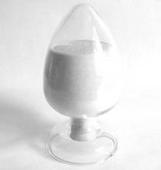Potassium borohydride - 13762-51-1 Specificaton & Trade Terms
| Model | 13762-51-1 |
|---|
| Place Of Origin | China |
|---|
| Price Term | EX-Work |
|---|
| Payment Term | T/T |
|---|
Name:Potassium borohydride
Synonyms:Borate(1-), tetrahydro-, potassium;Borate(1-),tetrahydro-,potassium;Borohydrure de potassium;borohydruredepotassium;K[BH4];Kaliumborhydrid;Kaliumtetrahydridoborat;KBH4
CAS:13762-51-1
MF:BH4K
MW:53.94
EINECS:237-360-5
Product Categories:Inorganic Chemicals;B (Classes of Boron Compounds);Classes of Metal Compounds;K (Potassium) Compounds (excluding simple potassium salts);Reduction;Synthetic Organic Chemistry;Tetrahydroborates;Typical Metal Compounds;BorohydridesMetal and Ceramic Science;Potassium Salts;Salts;Synthetic Reagents;Borohydrides;metal hydrides
Mol File:13762-51-1.mol
mp 500 °C (dec.)(lit.)
density 1.18 g/mL at 25 °C(lit.)
refractive index 1.494
storage temp. water-free area
Water Solubility 190 g/L (25 ºC)
Sensitive Moisture Sensitive
Merck 14,7616
CAS DataBase Reference13762-51-1(CAS DataBase Reference)
NIST Chemistry ReferencePotassium tetrahydroborate(13762-51-1)
Chemical Propertieswhite crystalline powder
General DescriptionPotassium borohydride is a white crystalline or powdered solid. When exposed to water Potassium borohydride may react violently and start a fire. Potassium borohydride is toxic by ingestion. Potassium borohydride is used to make other chemicals.
Air & Water Reactions:Highly flammable. When exposed to water Potassium borohydride may react violently and start a fire. Produce flammable gases on contact with water. May ignite on contact with water or moist air.
Reactivity Profile:A reducing agent. Reacts rapidly and dangerously with oxygen and with other oxidizing agents, even weak ones. Thus, they are likely to ignite on contact with alcohols. Hydrides are incompatible with acids, alcohols, amines, and aldehydes.
Health Hazard:Inhalation or contact with vapors, substance or decomposition products may cause severe injury or death. May produce corrosive solutions on contact with water. Fire will produce irritating, corrosive and/or toxic gases. Runoff from fire control may cause pollution.
Fire Hazard:Produce flammable gases on contact with water. May ignite on contact with water or moist air. Some react vigorously or explosively on contact with water. May be ignited by heat, sparks or flames. May re-ignite after fire is extinguished. Some are transported in highly flammable liquids. Runoff may create fire or explosion hazard.
